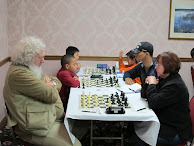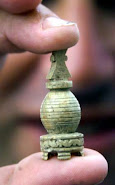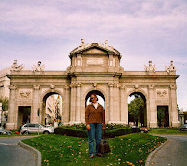Tuesday, November 24, 2009
Radical Islamists Destroying Ancient Pakistani Artefacts
Story from The Himalyan Times
Taliban destroying Gandhara heritage in Pakistan
Last Updated : 2009-11-22 12:22 PM
Agence France Presse
TAXILA: Archaeologists warn that the Taliban are destroying Pakistan’s ancient Gandhara heritage and rich Buddhist legacy as pilgrimage and foreign research dries up in the country’s northwest.
“Militants are the enemies of culture,” said Abdul Nasir Khan, curator of Taxila Museum, one of the premier archeological collections in Pakistan.
“It is very clear that if the situation carries on like this, it will destroy our culture and will destroy our cultural heritage,” he told AFP.
Taxila, a small town around 20 kilometres south of Islamabad, is one of Pakistan’s foremost archeological attractions given its history as a centre of Buddhist learning from the 5th century BC to the 2nd century. Violence is on the rise in Pakistan as Taliban bombers and gunmen strike with increasing frequency and intensity in the cities of North West Frontier Province and around the capital Islamabad.
“Even in Taxila we don’t feel safe. The local administration has warned us about a possible attack on this museum. We have taken some extra security precautions but they aren’t sufficient and we lack funds,” said Khan.
“For weeks we don’t get even a single foreign visitor. If visitors don’t come, if sites are not preserved and protected, if research stops, what do you think will be the future of archaeology?” he said.
In March 2001, Taliban militants in neighbouring Afghanistan blew up two 1,500-year-old Bamiyan Buddha statues in defiance of international appeals. The Islamist militia has since spread into Pakistan. Their opposition to music, art, dance, girls’ education and idolatry makes archaeologists fear that Pakistani Buddhist relics are in the eye of the storm.
Italian archaeologists were active in Pakistan’s northwest Swat valley from 1956 until they reluctantly discontinued work in 2007 after Taliban fighters led by radical cleric Maulana Fazlullah rose up demanding sharia law.
“It is not planned to carry on any research activity,” said Luca Olivieri, co-director the Italian archeological mission in Pakistan. After 17 years as curator in Swat, Khan took no risks. With the Taliban killing and bombing their way through the valley, the museum closed in 2008 and he evacuated the most priceless antiquities.
That September, the Taliban twice tried to blow up 7th century Buddhist relics -- damaging a rock engraved with images of Buddha that for centuries had been a pilgrimage site.This year, the rebels marched to within 100 kilometres (60 miles) of Islamabad, precipitating a major military operation in the northwest district and followed up with a current offensive in South Waziristan.“
This is the worst time for archaeology. Militancy has affected it very badly. There were 15-20 foreign missions working in this field, now this research has completely stopped,” said Khan. He says the army has requisitioned the museum building in Swat’s main town of Mingora. Despite the summer offensive, which appears to have flushed out Taliban havens in Swat for now, he doubts life will soon return to normal. “I don’t see any chance in the near future of re-opening the Swat museum. The situation is still not suitable.
“The museum building was badly damaged in a bomb blast. The display cases are broken and the building needs complete renovation,” he said. “There is still fear in people’s minds but I hope that the army will succeed in bringing back normalcy,” he added.
The situation is not much better further south. Peshawar, the troubled capital of northwest Pakistan known for its Buddhist heritage and archaeology, used to attract thousands of tourists but security fears and bomb attacks make it a no-go area for foreigners.
Its museum is open, but one gate has been sealed and cement barricades outside the second allow only pedestrians to enter.
Subscribe to:
Post Comments (Atom)



































No comments:
Post a Comment